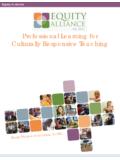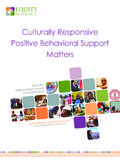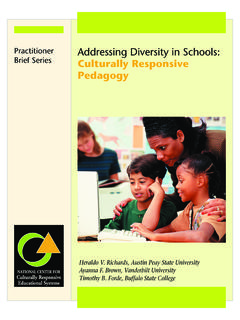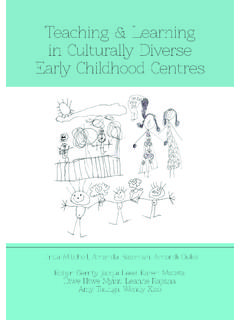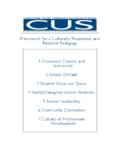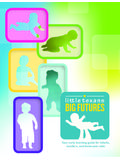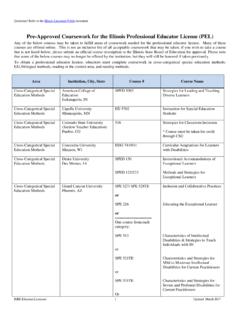Transcription of Elaborations of the Australian Professional …
1 EAL/D Elaborations of the Australian Professional standards for TeachersFor use when working with learners of English as an Additional Language or Dialect (EAL/D)Full versionAustralian Council of TESOL Associations (ACTA) May, 2015 Australian Council of TESOL Associations (ACTA) May, 2015 The Australian Council of TESOL Associations Inc. (ACTA) is the national Professional body representing teachers of English as an Additional Language or Dialect (EAL/D). As such, it has prepared these EAL/D Elaborations of the Australian Professional standards for Teachers by adding detail, illustration, and guidance in all Focus Areas and all career document and a two-page overview are available at: AITSL acknowledges the work and expertise ACTA has provided in producing this document to support teachers working in EAL/D Elaborations of the Australian Professional standards for Teachers: Overview3 STANDARD 1: Know students and how they learnEAL/D Elaboration.
2 Know, have empathy for and be responsive to the diverse linguistic, cultural and socio-historical characteristics of EAL/D learners; understand the nature of EAL/D learning and its relationship to culture, wellbeing and access to the Australian 2: Know the content and how to teach itEAL/D Elaboration: Understand the features of Standard Australian English, the language-and-culture demands of curriculum and community, and how to teach these as EAL/D content whether as an integrated part of mainstream teaching or as the focus of EAL/D classes. 12 STANDARD 3: Plan for and implement effective teaching and learningEAL/D Elaboration: Plan for and implement effective teaching and learning for EAL/D learners, taking account of language-and-culture demands in curriculum and also of data on students EAL/D learning 4: Create and maintain supportive and safe learning environments EAL/D Elaboration: Understand the features of Standard Australian English, the language-and-culture demands of curriculum and community, and how to teach these as EAL/D content whether as an integrated part of mainstream teaching or as the focus of EAL/D classes.
3 27 STANDARD 5: Assess, provide feedback and report on student learningEAL/D Elaboration: Assess, provide feedback and report on student outcomes for learning EAL/D and for learning subject area content through EAL/D, using linguistically and culturally accessible assessment practices and a sound understanding of EAL/D learning progressions and of the language-and-culture demands of set 6: Engage in Professional learningEAL/D Elaboration: Use the full version of the EAL/D Elaborations of the Australian Professional standards for Teachers to plan and implement Professional learning for working effectively with EAL/D learners and their 7: Engage professionally with colleagues, parents/carers and the community EAL/D Elaboration: Use intercultural understandings and skills to develop respectful and reciprocal relationships that acknowledge cultural and linguistic can classroom teachers find support?
4 The EAL/D Elaborations place the Australian Professional standards for Teachers in the context of teachers working with learners of English as an Additional Language or Dialect (EAL/D learners). For each Standard and Focus Area descriptor, the Elaborations describe appropriate actions by teachers and leaders in EAL/D settings. Who can make use of the EAL/D standards Elaborations ?The EAL/D Elaborations provide support for all teachers and leaders catering for EAL/D learners, including EAL/D specialists. They are intended for: Classroom teachers across all learning areas, since they are responsible for facilitating EAL/D learners access to the curriculum and providing ways to support their English language learning within the learning area EAL/D specialists, responsible for offering both targeted EAL/D classroom teaching and specialised support for mainstream teachers and leaders in effectively working with EAL/D learners Curriculum coordinators and other lead teachers.
5 Responsible for equitable curriculum access for all students and for initiating program evaluation and development and Professional learning for colleagues Pre-service teacher educators, responsible for preparing their students for teaching assignments that may include schools with very high numbers of EAL/D learners, especially in multicultural metropolitan suburbs and in remote Aboriginal communities. Intercultural officers, responsible for assisting curriculum access for culturally and linguistically diverse students and supporting teachers in that EAL/D Elaborations emphasise the importance of accessing EAL/D and intercultural knowledge sources from official EAL/D education websites to colleagues and family or community representatives.
6 Key among these are EAL/D specialists, whether teachers, leaders or consultants, and intercultural officers, such as bilingual teacher aides, Aboriginal Education Officers, and community liaison personnel. They directly support EAL/D learners and have a highly skilled understanding of the challenges of being an EAL/D learner and how to address these from different are the learning challenges for EAL/D learners? The EAL/D learner in Australia is simultaneously (a) learning English, (b) learning through English, and (c) learning about English. (a) Learning English refers to the challenge of learning a new language or dialect, namely Standard Australian English, as well as the cultures of Australian schools and the wider Australian society.
7 (b) Learning through English refers to the challenge of using English for social and academic purposes whilst still learning it. (c) Learning about English involves understanding the systems of English and how they work together in different situations to produce appropriate spoken and written are the aims of the EAL/D Elaborations ?The aims of the EAL/D Elaborations are to maximise support for EAL/D learners by informing: teacher practice and Professional learning goals staffing considerations in addressing the needs of EAL/D learners whole-school practice pre-service teacher courses in-service Professional learning programs performance management through the Australian Professional standards for Teachers EAL/D Elaborations of the Australian Professional standards for Teachers.
8 Overview 4 Australian Professional standards for TeachersElaboration for teachers and leaders working with EAL/D learnersProfessional Knowledge Know students and how they learn Know, have empathy for and be responsive to the diverse linguistic, cultural and socio-historical characteristics of EAL/D learners. Understand the nature of EAL/D learning and its relationship to culture, wellbeing and access to the Australian the content and how to teach itUnderstand the features of Standard Australian English, the language-and-culture demands of curriculum and community, and how to teach these as EAL/D content whether as an integrated part of mainstream teaching or as the focus of EAL/D classes.
9 Professional PracticePlan for and implement effective teaching and learningPlan for and implement effective teaching and learning for EAL/D learners, taking account of language-and-culture demands in curriculum and also of data on students EAL/D learning and maintain supportive and safe learning environmentsCreate and maintain learning environments that are both culturally and linguistically inclusive of EAL/D learners and supportive of their learning , provide feedback and report on student learningAssess, provide feedback and report on student outcomes for learning EAL/D and for learning subject area content through EAL/D.
10 Use linguistically and culturally accessible assessment practices and a sound understanding of EAL/D learning progressions and of the language-and-culture demands of set EngagementEngage in Professional learningUse the full version of the EAL/D Elaborations of the Australian Professional standards for Teachers to plan and implement Professional learning for working effectively with EAL/D learners and their families. Engage professionally with colleagues, parents/carers and the communityUse intercultural understandings and skills to develop respectful and reciprocal relationships that acknowledge cultural and linguistic diversity.



